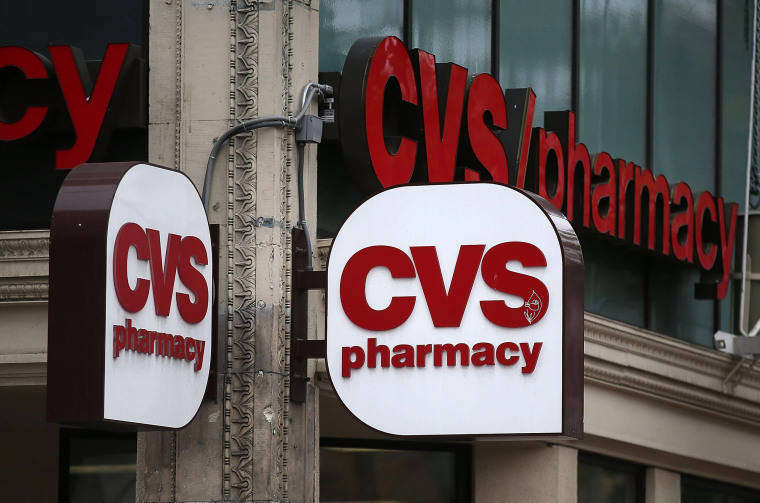Aetna's board of directors approved on Sunday the U.S. health insurer's sale to drugstore chain operator CVS Health Corp for approximately $207 per share in cash and stock, according to people familiar with the matter.
The $69 billion deal will be this year's largest corporate acquisition. It will combine one of the nation's largest pharmacy benefits managers (PBMs) and pharmacy operators with one of its oldest health insurers, whose far-reaching business ranges from employer healthcare to government plans nationwide.
According to the agreed terms, Aetna shareholders stand to receive $145 per share in cash and 0.8378 CVS Health shares for each Aetna share, the sources said. The companies will announce the deal later on Sunday, the four sources added.
Aetna shareholders will own about 22 percent of the combined company, while CVS shareholders will own the remainder, the sources said. Three Aetna directors, including Aetna’s Chairman and CEO Mark Bertolini, will join CVS's board of directors, the sources added.
The sources requested not to be identified because the deal has not yet been announced. CVS and Aetna did not immediately respond to requests for comment.
Related: Let feds negotiate drug prices, experts say
The deal comes as healthcare payers and pharmacies are responding to factors including the Affordable Care Act, rising drug prices and the threat of competition from online retailers such as Amazon.com Inc.
CVS plans to use its low-cost clinics to eventually save more than $1 billion per year on health care costs for Aetna's roughly 23 million medical members, sources have said.
A combined insurer and PBM will also likely be better placed to negotiate lower drug prices, and the arrangement could boost sales for CVS's front-of-store retail business.

The company expects to invest billions of dollars in the coming years to add clinics and services, largely financed by diverting funds away from other planned investments.
That could eventually cut costs substantially, with the clinics serving as an alternative to more expensive hospital emergency room visits.
Meanwhile, deeper collaboration between Aetna's insurance business and CVS's PBM division could drive down drug costs by adding clients and boosting the PBM's leverage with drugmakers.
Independent PBMs have long been criticized for potential conflicts of interest with insurance company clients, because they could potentially keep cost savings from drug negotiations rather than passing them on to patients.
Aetna patient visits to CVS stores for health care and prescriptions could also boost front-of-store sales, which like those at many retailers have fallen in recent quarters amid competition from online sellers.
Health insurers meanwhile have sought to cut costs amid steep prescription drug price rises and requirements to care for even the sickest patients under the Affordable Care Act.
Aetna last year tried to buy rival Humana Inc to gain leverage to control costs, but U.S. antitrust regulators shot down that transaction and a proposed merger between Anthem Inc and Cigna Corp.
Analysts have said the CVS-Aetna deal could prompt other healthcare sector mega-mergers, as rivals scramble to emulate the strategy.
It could spur a merger between Walgreens Boots Alliance Inc and Humana Inc, or between Humana and Wal-Mart Stores Inc, Ana Gupte, analyst at Leerink Partners, said recently.
Vertical Mergers
Although CVS and Aetna's planned merger does not directly consolidate the health insurance or pharmaceutical industries, the U.S. Department of Justice has been taking a closer look at so-called vertical mergers, where the companies are not direct competitors.
Last month, the Justice Department sued to block AT&T Inc's planned $85.4 billion merger with Time Warner Inc, saying the integration of a content producer with a distributor could reduce consumer choice.
The CVS-Aetna deal could attract similar scrutiny if regulators feared it could block Aetna customers from frequenting other pharmacies or contracting with other PBMs, several investors said, asking not to be named because they were not authorized to talk to the press.
Related: White House Says It Will End Key Obamacare Subsidies to Insurers
But four antitrust experts said there is little doubt the deal will be approved, although it might need to meet conditions to convince antitrust enforcers to sign off.
It is unclear whether it would be evaluated by the U.S. Federal Trade Commission or the Justice Department but that decision might be made based on which agency is less busy, said Matthew Cantor of law firm Constantine Cannon.
"(The companies) want the FTC to get it. The reason that the FTC is better at this point is that the Justice Department has just broken with decades of precedent of how to deal with vertical mergers," said Cantor, referring to the decision to refuse conduct remedies and file a lawsuit to stop AT&T from buying Time Warner.